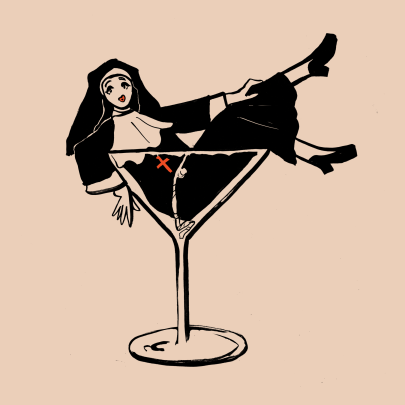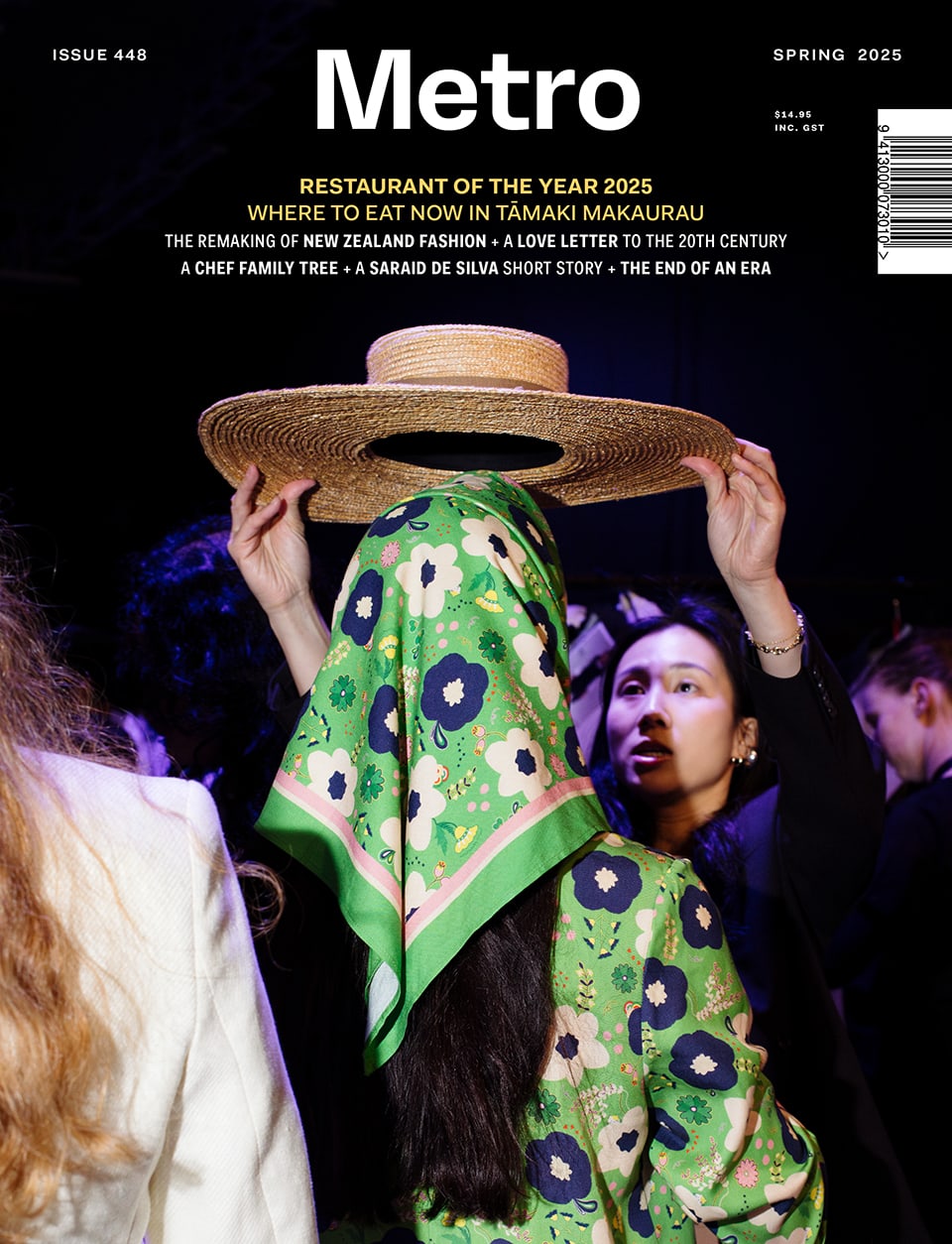Sep 8, 2014 Theatre
Auckland Theatre Compan, directed by Simon Bennett
Maidment Theatre
September 6, 2014
Thirty years ago the Campbell family lost a fierce fight against the Clutha Dam development in Central Otago, and their family home and orchards were flooded in the name of progress. It bred a family legacy and a steely mistrust of the government. Now the family have reunited on the shores of Lake Dunstan for a new battle: millionaire William Campbell’s Investment Company, under investigation by the Serious Fraud Office, has collapsed. People are calling him a crook. He wants to clear his name and his reputation.
Trees Beneath the Lake has the bearing of a significant state-of-the-nation drama. It’s not overtly political (and it’s just as much a state-of-the-family) but it articulates a response to the turbulent few years of this country’s history. The GFC and the collapse of many financial companies and the loss of nest eggs for many New Zealanders, but perhaps also the attitude that comes with having an exchange trader as a prime minister, all reflected through the deceptive blue of a man-made Otago lake. Arthur Meek’s play, partly written in New York on the Harriet Friedlander residency, takes stock of where we are.
Michael Hurst as William opens the show with direct address, candidly demystifying financial trading. His trick to success, he says, is to think about his mother, 67-year-old Nieve, when he’s investing other people’s money. He’s made it in New York and come home to New Zealand to do the same thing here. William wants us to like him (and with Hurst how could we not), but then we realise this is not a scene-setting soliloquy of his innermost thoughts, but an advertising pitch. We’ve been conned.
It’s like Mark Hotchin or Mark Bryers have been placed at the centre of the drama. William is a charmer, one of those men who inspire the utmost confidence. He’s also a man who applies the principles of financial trading to his private life: how much is he willing to risk?
He arrives at the house with a bag of specially curated gifts for Nieve (Catherine Wilkin), his son Ross (Leighton Stitchbury) and wife Jennifer (Theresa Healey): it’s a good way of deflecting attention from the attractive young lawyer Ruth (Brooke Williams) he has in tow. William invokes honesty repeatedly in his conversations, but the play carefully drip feeds information until we understand the extent of the conspiracy of wilful deception – financial and private – that William is neck-deep in. It’s hard to like this character for very long, but it’s fascinating to observe him operate. Watch to see if Meek redeems the character.
When all of it finally comes out in the wash, as it inevitably does, William seems to capitulate too easily and give away the fight, but the genius of Hurst’s take is that we’re never sure when he’s playing the character for truth – this could also be a calculated strategy to attempt to extract the most sympathy from the family.
If this were a play focused solely on William it would leave a loathsome taste. Instead, it expands as an ensemble drama, William countered by the quiet and then angry dignity of Wilkin’s Nieve, the bite of Healey’s Jennifer, the long-thwarted desire of gentlemanly neighbour Tom (Peter Hayden) and the overleaping ambition of lawyer Ruth. All the characters have genuinely engrossing motivations, including Stichbury’s monosyllabic Ross, who retreats into his X-Box. How much of the situation does he understand? Is he a product of a spoiled lifestyle, or are his issues more serious?
Tracey Collins’ design of the Campbell house slants inwards, as if sinking in the middle. Optically it makes the stage look smaller, more compact. It’s a suitably unbalanced space to place the action, although it poses challenges for director Simon Bennett, who must stage key scenes in bedrooms high up on either side of the stage, where there is little room for movement and the actors are stuck in place delivering their lines. A gnarled apricot tree rises from the back of the stage, a few branches of fruit sticking out. Is the fruit an early bloom, or on the decline? A good question for this drama. Composer Jason Smith shades sounds of the lake and birds into his score, lighting designer Philip Dexter evocatively draws upon an Otago palette, and Sara Taylor’s costume design aptly reveals how much each character wishes to draw attention to themselves.
Meek takes big risks with this play. He makes us aware of many of the character’s secrets and confidences early on, instead of waiting until the climax, as is more common. It works: as with many politicians during this election campaign, we wonder, what else is to come? The stakes of the serious fraud investigation fall by the wayside as the family unit come to crisis point.
In its dramatic ambition Trees Beneath the Lake references Arthur Miller’s Willy Loman, Anton Chekhov’s The Cherry Orchard, Tracey Lett’s August: Osage County and the panoramas of Bruce Mason. Bruce Mason? His is a name you rarely see invoked in New Zealand’s contemporary theatre, so much has it moved away from our formative heritage. There are echoes here particularly of Awatea, staged by ATC in 2012. In that play there’s a deceit against old Werihe because the fear is the truth will kill him. The same reason is given for protecting Nieve. “You’re wide awake and you’re still bloody standing,” says Tom, “What do you expect me to do?” Nieve counters, just as Werihe sprightly declares he is “alive still”.
Meek unashamedly writes with a Pakeha consciousness. In On the Upside Down of the World, he made sense of colonial encounter through the settler’s perspective. In Lake, he strongly evokes the importance of land to the Pakeha. “We’re here because this is my place to stand,” intones William. Ruth, bursting with excitement, declares the official line is that this is his “turangawaewae”. Uncomfortable with that, William says, “I think we should stick to plain English.” This is the Campbell’s world, and their lost kingdom.
William and Jennifer both attack the New Zealand psyche. William says his trial is about people in this country not liking new ideas. Jennifer says she hates New Zealand, “I hate the small-minded bullshit.” It’s the tired tall poppy defence, and having returned from overseas, they both see themselves as victims. Against the recently released Identity Insight Report on Young New Zealanders that declared the death of cultural cringe, it resonates as a question of just what sort of success New Zealanders wish to celebrate.
Meek sets up some life-threatening narrative possibilities and you start to wonder how closely he has followed “Chekhov’s gun” rule, where every element in the story must be necessary to its resolution. As physical danger presents itself, more than once, you realise this is a playwright with an audacious nerve – my partner said I was gripping her hand rather tightly in the final moments of the play.
Trees Beneath the Lake matches its big themes with big drama and big laughs. Meek has my complete confidence; give him yours too.
To September 27.





